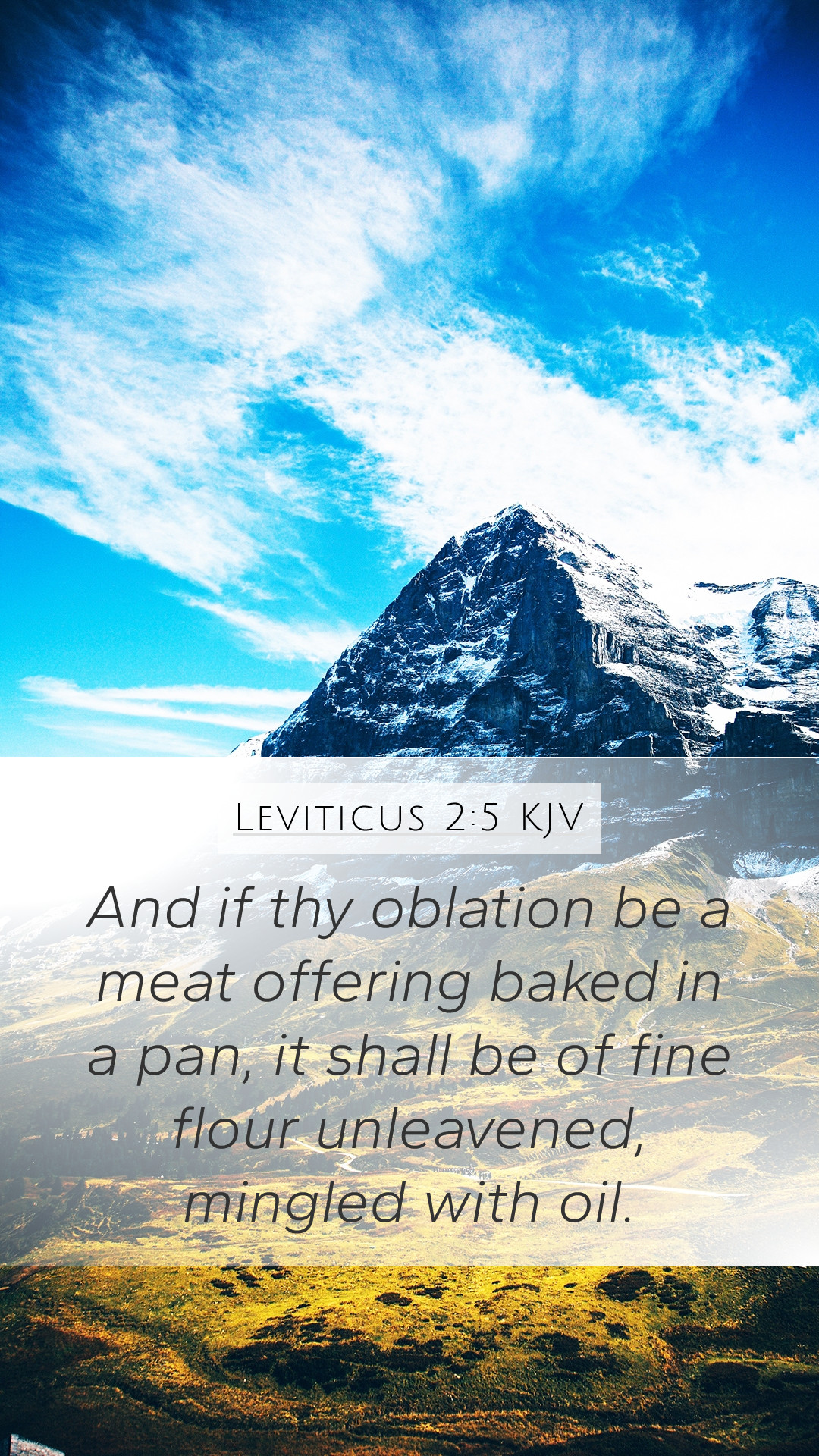Understanding Leviticus 2:5
Leviticus 2:5 states:
If your offering is a grain offering baked in an oven, it is to be made of fine flour; it is to be unleavened and mixed with oil. (Leviticus 2:5, NIV)
Bible Verse Explanations
This verse is part of the instructions given by God to the Israelites regarding the grain offerings, which were a significant aspect of their worship. Understanding this scripture helps one grasp the broader themes of holiness, obedience, and the significance of offerings in the Old Testament.
Insights from Commentaries
-
Matthew Henry's Commentary:
Henry emphasizes the importance of purity and quality in the grain offerings. The use of fine flour represents the best of what one has to offer to God, denoting reverence and sincerity in worship. The absence of leaven symbolically relates to the idea of sin and corruption, where the faithful are called to present themselves in a state of holiness when approaching God.
-
Albert Barnes' Notes:
Barnes points out that the grain offering is significant as it acknowledges God's provision. The details given about how the offering should be prepared serve as a reminder that worship involves thoughtful preparation and the offering of one's best to God. The reference to oil implies an anointing that symbolizes the Spirit, reflecting that true offerings must be empowered by the Holy Spirit.
-
Adam Clarke's Commentary:
Clarke draws attention to the symbolism within the grain offerings. He elucidates that these offerings are a type of gratitude for all of God's blessings. This reinforces the spiritual discipline of giving thanks and recognition to God for the sustenance He provides, while the specifics about preparation reflect a deeper understanding of how to approach God respectfully and appropriately.
Meaning of Bible Verses
The profound meaning behind Leviticus 2:5 lies in recognizing that every offering presented to God should be the finest quality available, reflecting our highest respect for Him. To understand this passage is to grasp the broader implications of our spiritual offerings today, as we are called to present our lives, talents, and resources to God in a manner that honors Him.
Application of this Verse
Leviticus 2:5 invites believers to contemplate how they can offer their ‘best’ to God in daily life. Whether through service, time, or resources, the call is to ensure that what we give back to God is a reflection of our heart’s intentions. This aspect of worship can be explored in various Bible study groups or online Bible study forums where individuals seek to delve deeper into how to interpret Bible verses effectively.
Bible Study Insights
When studying this verse, consider the historical context and why these specific instructions were given. Engaging with Bible study resources can enhance your understanding of the rituals and their significance in ancient worship practices.
Related Bible Cross References
- Exodus 29:2 - Instructions for offerings.
- Numbers 15:1-12 - Additional guidelines for grain offerings.
- Hebrews 13:15 - The idea of offering praise as a sacrifice.
Summary
In summary, Leviticus 2:5 serves as a critical reminder of the nature of our offerings to God. Through careful study and interpretation of this verse, believers can better understand the importance of presenting ourselves genuinely and reverently. This aligns with broader themes found throughout Scripture, reinforcing the offer of our lives as a form of worship and gratitude.
Further Reflection
Consider your own life: what does it mean to offer ‘fine flour’ in today’s context? How do you ensure that your daily actions and offerings to God reflect sincerity and quality? This passage invites ongoing reflection and commitment to living a life that honors God.


